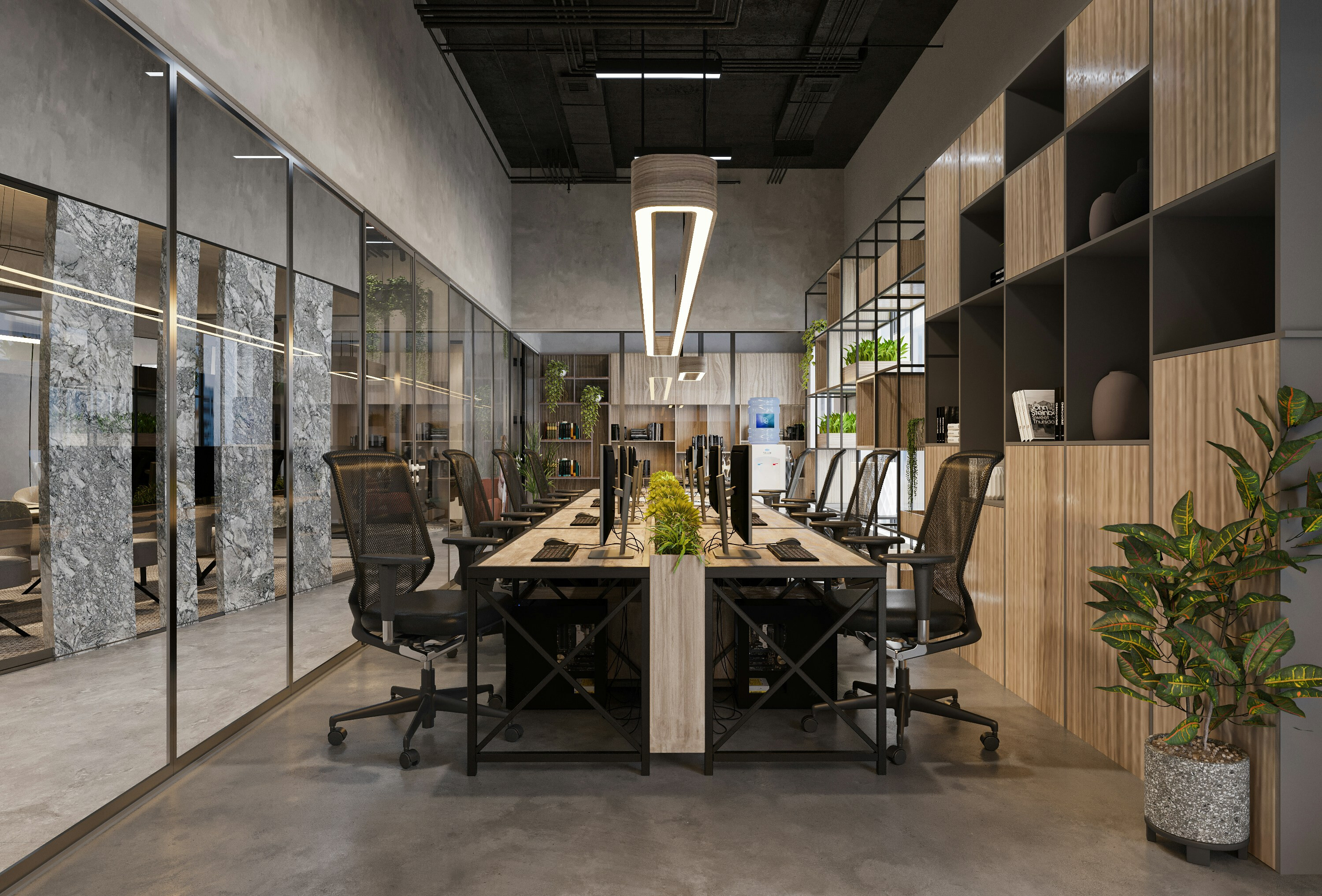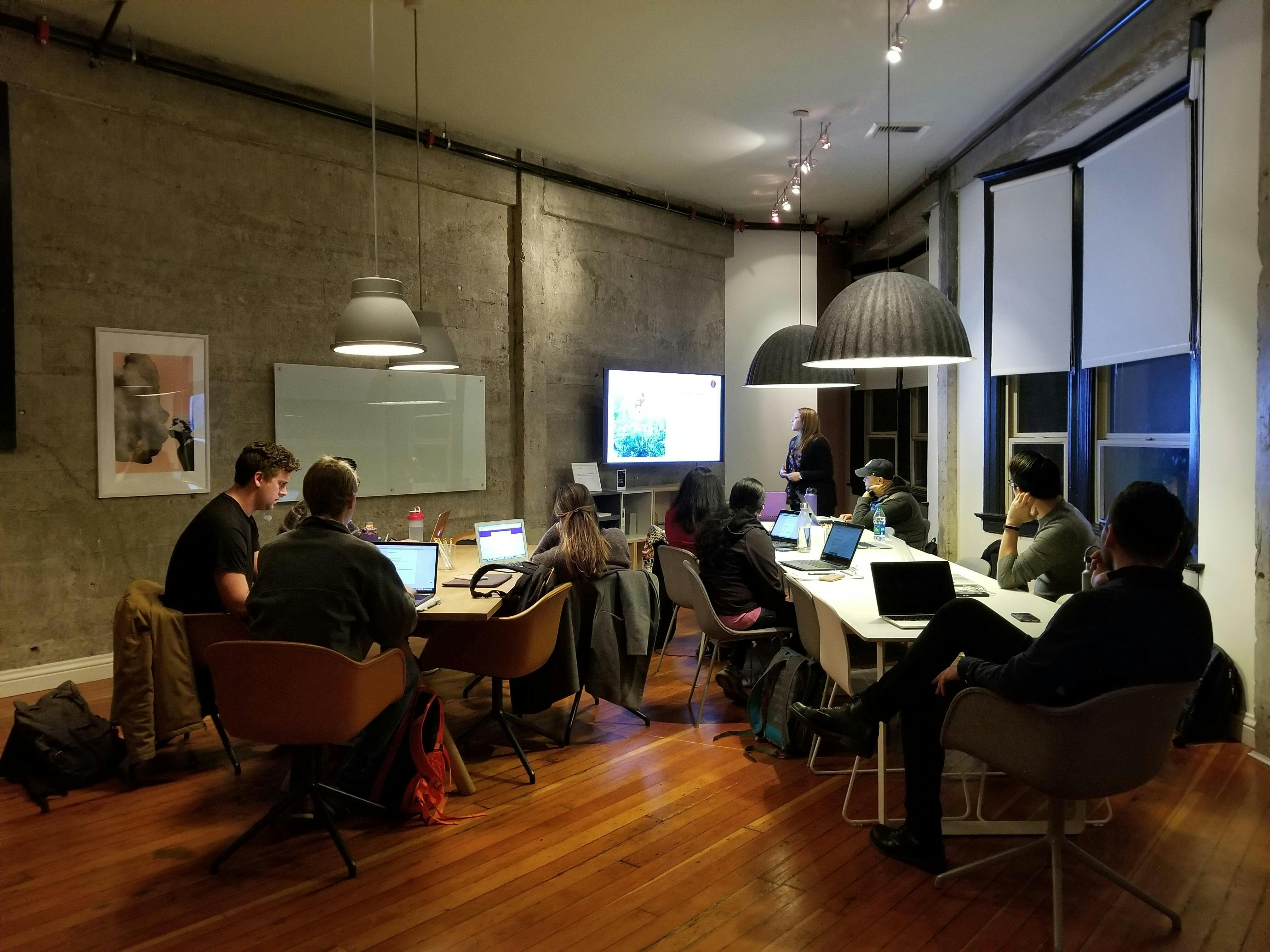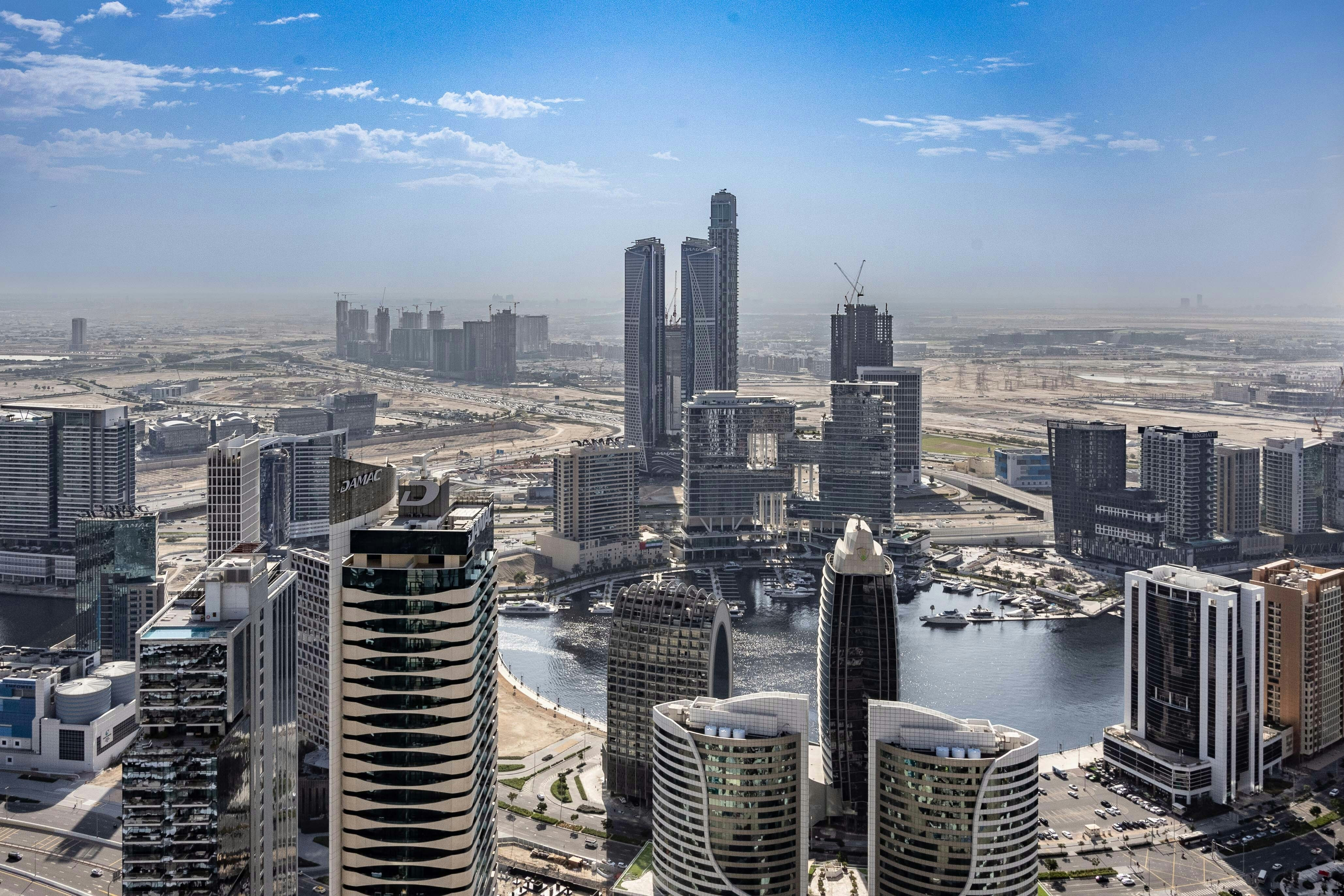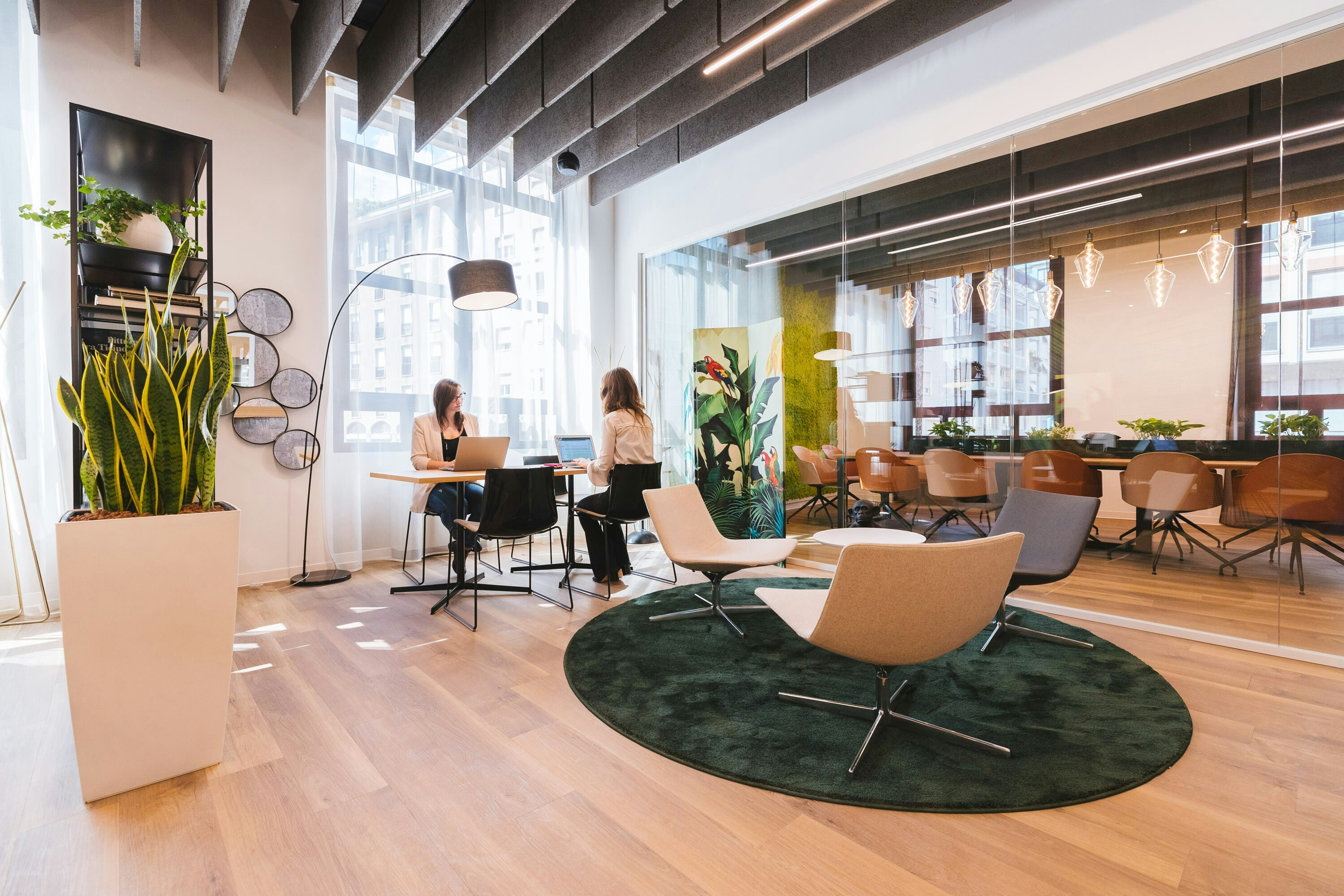
Best Offices in Dubai: Top Locations & Leasing Guide for 2026
Looking to rent office space in Dubai in 2026? Keep in mind that Dubai’s office leasing landscape in 2026 is being shaped by remote work trends, sustainability goals, and a rising demand for flexibility. Long-term leases are no longer the default, and there’s growing demand for flexible terms, hybrid workspaces, and sustainable buildings.
Whether you're setting up a new branch or relocating an existing team, knowing which areas offer the right balance of cost, infrastructure, and incentives is key to making a smart leasing decision. We’ll guide you through the process with trends, demand and prices by area, plus a closer look at which locations suit different types of businesses. Here’s what you need to know to navigate Dubai’s office leasing landscape in 2026.
Office Leasing Demand & Average Rental Prices by Area
Area | Demand Level | Average Annual Rent (AED/sq.ft) |
|---|---|---|
DIFC | Very High | 250–350 |
Business Bay | High | 120–180 |
Downtown Dubai | High | 180–300 |
JLT / DMCC | Moderate | 90–140 |
Dubai Silicon Oasis | Moderate | 60–100 |
Dubai South | Growing | 50–90 |
Key Trends Shaping Dubai Office Leasing in 2026
In 2025, Dubai’s office market is adapting to new business needs. Companies are no longer locking into long-term leases the way they used to. Instead, there’s growing interest in flexible terms, co-working setups, and hybrid spaces that support part-time office use.
Government-backed initiatives like economic free zones and visa reforms are also attracting more international businesses. Premium areas are still in high demand, but newer business hubs are gaining popularity due to lower prices and modern facilities.
Office Demand & Pricing Trends
Demand for office space varies by area and industry. DIFC and Downtown Dubai continue to draw large firms, especially in banking, legal, and investment sectors, due to their prestige and central location. Business Bay is a favorite among creative agencies, consultancies, and startups that want a modern setup without paying DIFC-level rents.
JLT and DMCC offer affordability and the benefits of a free zone, while Dubai Silicon Oasis and Dubai South are gaining traction among tech firms and logistics companies thanks to their lower rents and sector-specific incentives.
Sustainability and Green Building Trends
Sustainability is becoming more than just a buzzword in Dubai’s office market. Tenants are increasingly choosing buildings that offer better energy efficiency, natural lighting, smart climate control, and recycling programs. Developers are responding by designing office towers that meet green building certifications like LEED and Estidama.
Some older buildings are also being retrofitted to meet these new standards. Businesses see value in greener buildings not just for the environment but also for reducing utility costs and improving employee well-being.
Types of Offices Available in Dubai
 Dubai’s commercial real estate market offers a wide range of office types to match the needs of different businesses. From cost-effective shared spaces to fully customizable corporate units, choosing the right office type is just as important as picking the right location. The best option depends on your budget, team size, and how much flexibility or control you need over the space.
Dubai’s commercial real estate market offers a wide range of office types to match the needs of different businesses. From cost-effective shared spaces to fully customizable corporate units, choosing the right office type is just as important as picking the right location. The best option depends on your budget, team size, and how much flexibility or control you need over the space.
Fitted and unfitted offices
These are the most common types of leased office spaces in Dubai’s towers and business districts, and the difference between them can significantly affect your upfront costs, move-in timeline, and design flexibility. Here's what to expect from each type.
Shell and Core
These are unfinished offices delivered with only the basic structural elements, bare concrete floors, no ceilings, and exposed services. Tenants are responsible for the full interior fit-out. Shell and core spaces are suited for companies that want to build a tailored office environment from scratch and have the budget and time to do so.
Fitted Offices
Fitted offices include essential finishes like flooring, ceilings, lighting, and air conditioning. These are ready for furnishing and allow businesses to move in faster without the cost of a full fit-out. They’re a practical choice for companies wanting a balance between flexibility and speed.
Serviced and Flexible Offices
These options are designed for businesses that value convenience and flexibility. Ideal for startups and smaller teams, they reduce the burden of managing office logistics while offering adaptable lease terms.
Fully Furnished Offices
Fully furnished offices come move-in ready with desks, chairs, partitions, and sometimes basic reception setups. They are usually located in business centres and allow for immediate operations with little to no setup time.
Serviced Offices
Serviced offices are professionally managed and include shared services like reception staff, meeting rooms, internet, maintenance, and utilities. Leases are typically flexible, and terms can range from monthly to annually. This model works well for international firms opening a satellite office or companies that want an all-inclusive package.
Co-Working Spaces
These are shared environments where individuals or small teams rent desks or small office sections. They’re most popular among startups, freelancers, consultants, and remote-first companies. Co-working memberships often include access to events, shared lounges, phone booths, and business-grade amenities.
Best Areas to Lease an Office in Dubai
 Dubai has several key office locations, each suited to different business needs and budgets. Exploring all the areas can help you choose the one that makes the most sense for your business. Below, we break down the main office districts and their advantages.
Dubai has several key office locations, each suited to different business needs and budgets. Exploring all the areas can help you choose the one that makes the most sense for your business. Below, we break down the main office districts and their advantages.
DIFC: Ideal for finance & law
Dubai International Financial Centre (DIFC) is the go-to district for banks, investment firms, law practices, and consulting companies. It’s a prestigious business hub with world-class infrastructure, top security, and easy access to government and regulatory offices. Offices here come with premium amenities but come at higher rental costs. The area also offers excellent dining, hotels, and networking opportunities, making it perfect for companies in Dubai that want a central, professional image.
Business Bay: Central, Modern, High-Rise
Business Bay is a fast-growing commercial area located near Downtown Dubai. It features many modern skyscrapers and is popular with tech startups, media companies, and professional services. The area offers a mix of office types from large towers to smaller spaces, with rents generally lower than DIFC but still in a central location. Its proximity to major transport links and retail options makes it attractive for businesses looking for a vibrant working environment.
JLT / DMCC: Free Zone, Affordable, Diverse
Jumeirah Lakes Towers (JLT) and Dubai Multi Commodities Centre (DMCC) are known for their affordable office spaces and status as free zones, allowing 100% foreign ownership and tax benefits. This area attracts a wide range of businesses, including trading companies, small to medium enterprises, and freelancers. The community feel, lakeside views, and convenient public transport access make it a practical choice for companies on a budget without sacrificing connectivity or amenities.
Downtown / Sheikh Zayed: Prestige Locations
Downtown Dubai and Sheikh Zayed Road are prime business addresses that signal success and professionalism. Downtown offers iconic views of the Burj Khalifa and Dubai Fountain, attracting corporate headquarters and luxury brands. Sheikh Zayed Road is a major artery lined with office towers, hotels, and commercial centers, providing easy highway access. Both areas come with higher rents but offer unbeatable prestige and visibility for businesses wanting to impress clients.
DSO / Dubai South: Tech & Logistics Focused
Dubai Silicon Oasis (DSO) and Dubai South are newer business districts tailored for tech companies, startups, and logistics firms. These areas provide modern infrastructure and competitive rents, with facilities designed to support innovation and operational efficiency.
Dubai South’s proximity to Al Maktoum International Airport makes it ideal for logistics and e-commerce companies, while DSO offers a tech-friendly ecosystem with smart city features. These districts are perfect for businesses looking for cost-effective options in emerging hubs.
Avoid Mistakes: What to Check Before Leasing
 Leasing an office is a big step, so it’s important to know what to look out for. Checking the right details can save you from surprises and extra costs later. Here are some key things to keep in mind before signing a lease.
Leasing an office is a big step, so it’s important to know what to look out for. Checking the right details can save you from surprises and extra costs later. Here are some key things to keep in mind before signing a lease.
Free Zone Vs. Mainland
Decide whether you want your office in a Free Zone or on the Mainland. Free Zones offer benefits like 100% foreign ownership and tax advantages but come with restrictions on where you can do business. Mainland offices give you more flexibility to work anywhere in the UAE but usually require a local partner. Choose the setup that fits your business needs.
Lease Terms, Fit-Out, and Hidden Costs
Read the lease contract carefully. Know how long the lease lasts and what happens if you want to leave early. Check who is responsible for the office fit-out or renovations — sometimes the tenant has to pay. Also, watch out for extra fees like maintenance charges, utilities, or service fees that might not be obvious at first.
Required Documents and Licensing Basics
Make sure you have all the necessary paperwork ready before leasing. This usually includes your trade license, passport copies, Emirates ID, and sometimes visa documents. Also, understand the type of license your business needs and confirm that your office location supports that activity. Getting these right upfront helps avoid delays and legal issues.
Tips to Choose The Best Office in Dubai
Choosing the right office space is more than just picking a building, it affects your team’s productivity, your brand image, and your business growth. Before you start your search, here are some key things to keep in mind to make a smart decision that fits your needs now and in the future.
Match Zone to Industry Type
Certain business areas in Dubai are known for hosting specific industries. For example, DIFC is the go-to spot for finance, law, and consulting firms because it offers a professional environment and regulatory benefits. Tech companies and startups often prefer Dubai Silicon Oasis or Dubai South, where the infrastructure supports innovation and logistics.
Free Zones like DMCC and JLT offer perks like 100% foreign ownership and tax benefits, making them popular with international businesses and trading companies. Choosing a location that aligns with your industry can help you build connections, attract clients, and stay compliant with local regulations.
Consider Access, Visibility, and Flexibility
How easy is it for your staff and clients to reach the office? Locations near a Dubai metro station, major highways, or with ample parking are usually better for daily commutes and meetings. Visibility is also important, a well-known building or a central location can boost your brand presence and credibility.
Additionally, think about your future plans. Will your team grow? Do you need meeting rooms or flexible workspaces? Look for offices that offer flexible lease terms or spaces that can be adapted or expanded as your business evolves. This can save you time and money later.
Before You Sign: Final Leasing Checks
Signing a lease is a major commitment for your business, so double-checking all details beforehand is essential. Review the entire agreement carefully, understand your rights and obligations, and clarify anything unclear with the landlord or your advisor. You want to be in touch with the exact price and make sure that the office space supports your business needs.
What to Prepare
Before signing, gather all required documents like your trade license, Emirates ID, and company authorization (if applicable). Verify the lease includes clear start and end dates, rent amount, and payment schedule. Ask for a list of any additional fees such as maintenance, utilities, or service charges.
Make sure the lease spells out what’s included—like parking, internet, or security—and if you’ll have access to shared facilities. Check policies on lease renewal, early termination, and rent increases so you know what to expect throughout the term.
Lease Negotiation Basics
Don’t hesitate to negotiate key terms such as rent price, lease duration, or rent-free periods. Clarify if you can make modifications to the office space or if subleasing is allowed. Understand the consequences of breaking the lease early, including any penalties or fees.
Ask for all negotiated changes to be included in writing to avoid misunderstandings. If you’re unsure about any terms, consider consulting a real estate agent or legal advisor to ensure the contract protects your interests.
FAQs
Get quick answers to the most common questions about renting, setting up, and running an office in Dubai.
1. Why open an office in Dubai?
Dubai offers many advantages for businesses, including a tax-free environment with no personal income tax and limited corporate tax. This can lead to substantial cost savings compared to other locations.
2. How can you set up an office in Dubai?
To set up an office in Dubai, choose a mainland or free zone location, register your business, get the necessary licenses, and lease office space. The process includes selecting a business activity, reserving a trade name, submitting documents, and getting approvals from the relevant authority.
3. Can you run a business from home in Dubai?
Yes, working from home is permitted in Dubai, depending on your business activity and license type. If your operations don’t involve client visits or large inventory storage, running your business from a residential address is generally acceptable.
4. Is it legal to use a virtual office in Dubai?
Yes, using a virtual office in Dubai is legal, provided you obtain the appropriate trade license for your business activity. You must register your company and secure the necessary permits—whether commercial, professional, or industrial—based on the nature of your operations.
5. How to rent an office in Dubai?
You’ll need a trade license to rent most offices in Dubai, especially in mainland areas. After choosing a space, you’ll sign a lease, register it with Ejari (Dubai’s rental system), and usually pay a security deposit and agency fee. Rental prices depend on the size, location, and facilities, so it’s a good idea to compare options or speak with a commercial property agent.
6. What is the average salary for office jobs in Dubai?
Salaries for office jobs in Dubai vary by role, industry, and experience level. On average, administrative roles like office assistants or secretaries earn between AED 4,000 and AED 8,000 per month. Mid-level positions such as executive assistants or HR coordinators can earn between AED 8,000 and AED 15,000, while managerial roles may go beyond AED 20,000 monthly. Multinational companies and jobs in sectors like finance, tech, and consulting typically offer higher pay.
Conclusion
Dubai’s office leasing market is adapting to new work patterns, evolving business needs, and sustainability priorities. Understanding area-specific demand, pricing, and lease considerations can help you find a workspace that aligns with your company’s goals and budget. Whether you’re entering a free zone or mainland location, paying attention to lease terms and future flexibility is essential for long-term success.
While Kredium doesn’t lease commercial space, our team can support your broader real estate goals in Dubai, from residential investments to securing the right mortgage solution. Get in touch with our real estate experts today to explore your options.
Photo Credits: Unsplash
